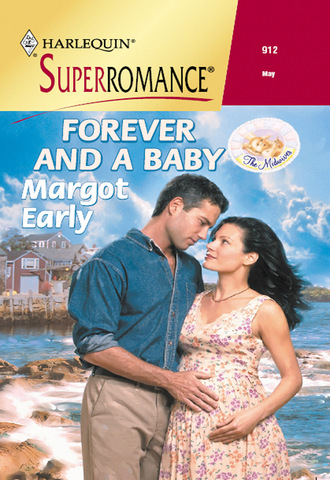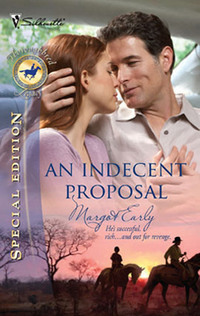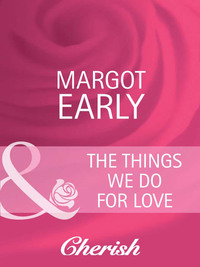
Полная версия
Forever And A Baby
He left fourteen-year-old twins.
One, named Tristan, had once fallen into the wrong hands. He grew into a fisherman like his father, and his fisherman wife died at sea, falling on a line, impaled by a hook. Their daughter, Keri, survives.
Tristan’s twin is a woman named Dru, who once—or twice—fell in love. She can fall no farther.
She carries the egg and the sperm of this line.
Of the tribe of Haverford and the tribe of Nudar.
CHAPTER ONE
When our cousin Skye was fifteen, she told her father she would like to see the desert, and he paid for her and for the twins from Nantucket to come to the Sudan. Skye’s father had escorted them, to leave them in our care while he went elsewhere. It was in August, during the rains and also a several-year lull in the civil war, and my father and I met them in Khartoum with our Land Cruiser. In the air terminal, spotting me for the first time, Skye clasped her fingers around each side of my head and said, “Are you an urchin or a sheikh?” and kissed me, which women rarely did to me at my age, especially in the Sudan. I was twelve, and she was beautiful. I always remember her that way. And, often, myself as well.
—Ben, recollections of a fall
Nantucket Island
October 21
TRISTAN BROUGHT a pregnant woman to Omar Hall’s funeral.
The woman. That woman.
He had come from Gloucester, off a longliner, a swordboat, blond hair lighter, blue-green eyes bloodshot, the scent of the fish and diesel still about him, the carved-away symmetrical marks on each cheek disconcerting to anyone unused to disfigurement. But Dru was used to her twin. Fishermen were, by definition, often gone. They returned unannounced.
In the church vestibule, protected by security from the media and the condemnation of the world, Dru embraced him. Then she saw the woman. The blond dreadlocks and ring through her nose. Come from Gloucester. And pregnant.
Dru’s reaction wasn’t a midwife’s, perhaps because it was so long since she’d felt like a midwife. It wasn’t even that of a woman who wished she was carrying or had carried her dead husband’s child, anyone’s child. She thought, It’s her. It’s the woman I saw with that man in Gloucester.
Dru dismissed it. All imagination. All hope.
And the baby would not be Tristan’s. Not a chance. After his wife had died, he’d married the sea. Some of his time ashore belonged to his boat. But the rest he gave to his daughter, to Keri.
Dru kept his betrayal to herself, walked to her oak pew. From there, the casket accused her of her own crime. Not the crime the media proclaimed and nobody seemed able to forget. There had been no adultery. But would her guilt be greater if there had? She could no longer judge her brother or anyone else.
A minister spoke over the body of an irreligious man. This was Omar’s choice. She wanted to cremate him and scatter his ashes to the wind. No, she wanted him, wanted the charming protector who’d brought her such a lovely gift after graduation from Georgetown with her Master of Science in Nurse-Midwifery. Now so dusty. Omar had appeared more frequently in her life over the next two years. On one of her visits home from New Bedford, where she’d worked in the hospital and provided maternity services for low-income families, he’d hinted at his feelings. Afterward, he’d come to New Bedford often, flying her to Manhattan for dinner or theater. Comfortingly old-fashioned in his expectations but truly in love with her, desirous of her. So safe. Omar, I want you back.
He’d bought a plot in the cemetery. One. Expecting her to remarry. She cried. Other losses. Other deaths. Her father’s boat sunk. That woman Tristan brought…the man she was with… Wishful thinking. Omar would go to the earth, all of them taken by the water or the earth. Water deaths, for all who loved fishermen, were the worst.
After the funeral, the few family members she’d invited gathered at the cemetery for the graveside service. No children. No strangers. Outside the gate, Tristan said, “She can come, right? I need to stay with her.”
The dreadlock woman.
Pregnant…
Tristan’s ponytail blew in the October wind.
Dru resented the woman again. She wanted her twin to herself, wanted to walk alone with him on the beach, wanted to explain the truth. Explain those tabloid photos, the photos from Gloucester. Why a man, a cousin much too distant to be accorded the trust of a brother, had been touching her hair and her skin so that the aching of man and woman translated through newsprint. Tristan would have heard gossip, too; Gloucester was his world.
That vision from the Gloucester Marine Railways needled her. Again, she saw the gray-haired man—a ghost—and this woman, hugging, like a father wishing farewell to his daughter. Like my father. So much like her father and Tristan’s, who had never come home.
“She’s not welcome. This is private.”
A pause. His blue eyes said she’d changed. “I brought her for you. You can help with her birth.”
Presenting his companion like a gift. A birth to attend.
“I’m not a practicing midwife, I don’t do home births—” she didn’t do any births, now “—and I know nothing about her.” Except that no one in pregnancy should be exposed to unpleasantness. A burial.
Tristan’s eyes had slanted, his slim jaw set.
A stalemate with this tall twin who had never looked anything like her. He’d never looked like a Haverford, with the white-sand hair he tied in a knot for fishing, with his gaunt cheeks and sensuous mouth, and the vertical scars where flesh had been gouged away from the base of his lower eyelids to his jaw, three on each side, discolored shades of black and purple and blue. A face that seduced by hypnosis—you couldn’t look away.
Years ago, Omar had said, with resignation, You love Tristan best.
Dru couldn’t explain that she and Tristan were each other. She knew no words that meant twin, no words that explained.
But that pregnant woman—girl, college girl—was not coming to Omar’s graveside.
Tristan said, “I’ll have to miss it, too.”
“You’re excused.” She walked away, Louis Vuitton shoes sinking in the dry, pale-yellow grass. The fifth richest woman in the world. Wishing she was pregnant. By some reversal of fortune, with Omar’s child.
Outside the cemetery gate, photographers rustled dry leaves, cameras clicking and whirring, capturing the widow, framing the ebony casket hovering over the hole in the earth. Men in tailored suits, ambassadors from countries Omar had assisted, fund managers and financial gurus and the media had flocked to Nantucket. Inexplicably, the cameras made her feel lonely.
Those assembled at the grave were Islanders. Tristan wasn’t the only one missing, the only relative who should have been there. Omar wasn’t the only one Dru missed. She wanted another. And couldn’t help it.
Dru caught the gagging in her throat, swallowed it. Earlier, she’d noticed the conspiratorial look of a cousin from California who’d pretended consternation. But wouldn’t say aloud, Where’s Ben, for goodness’ sake? He’s as close to Omar as any of us. Other relatives murmuring to each other.
The wind blew October through her hair. The season of ghosts and regrets. She sent wordless messages to her twin, images of Gloucester. She pictured, carefully, another face, with black-brown eyes. Two Land Cruisers meeting in dust without horizon, a twenty-year-old image. Remember, Tristan?
How could he forget? As she’d said to Ben, how could any of them?
When the time came for her words, Dru unfolded the piece of paper she’d brought. Here, she could read with no press listening. She trusted the few at the grave.
There was Sergio, Omar’s personal assistant, who had served the Hall family for thirty-eight years.
And Keziah Mayhew, Dru’s dear friend since childhood, a fourth cousin twice removed, the midwife of Nantucket, fighting for her share of the island’s two hundred and thirty births a year. She and Dru had planned to practice together someday. They never had and never would.
And over Omar’s grave stood his sister, Keziah’s mother—Mary Hall Mayhew.
And Dru’s mother, Joanna.
That was all.
“I just wanted—” was that her voice? “—to say some things about Omar. I agreed with every word of Roger’s eulogy at the church.” The manager of The Caravan Fund had spoken about Omar. “But this is for family.” Pressing her lips tight, she ignored the glimpse of Tristan’s blond head somewhere on the perimeter, outside the gate. “I guess it’s for me.” She read, “Omar was a good man. I loved him—because he was good. We had no secrets. I did nothing against his wishes. He did nothing against mine. This is the truth. We loved each other deeply till the day he died.” A lie, a lie, isn’t it, Dru? Aren’t you lying? Your voice is shaking. Your face is so warm you feel it through the cold wind, that wind blowing Keziah’s long auburn hair.
They waited to see if she was done.
All she’d given was self-defense.
Security apprehended a photographer inside the fence. Dru looked toward the casket where Omar wasn’t, with the winds of Nantucket. Spontaneously she crumpled the paper. You all know who he was. As well as I did.
She would have liked to sing a Bedouin love song, to mourn him her own way. Mary would sing, too, for the death of her adopted brother, her last surviving brother. But Omar had disliked their singing and dancing, just as he’d been ambivalent toward Dru’s midwifery. This staid burial was what he’d requested.
Only one thing Dru had done differently. She had gone to the funeral home and dressed him. She’d needed to touch and know his cold, thick, unmoving limbs, the stone feel of his body. To kiss his face in death. So that it would not be the way it had been with her father, whose boat had never returned; she saw his ghost, his double, everywhere.
As in Gloucester. With Tristan’s pregnant friend.
When they’d all crossed the dry grass, left the grave site and the casket, exited the cemetery enfolded by security, Tristan and the young woman merged with them. Dru stopped, handed him the crumpled piece of paper. “I read that.” Cameras, their ceaseless motors winding, advancing shutters falling on her sorrow.
Tristan circled her shoulders with his arm, his free hand touching the pregnant woman, assuring her presence. Or assuring her of his. “Look, I’m sorry, Dru. She was in Conway’s Tavern. She needed help. Her name’s Oceania. She’s deaf. She reads lips some. I brought her here so you could help her with her birth. You are a midwife. You didn’t go to school for six years to pretend you’re not.”
She’d also attended workshops, earned continuing education units. She’d done everything to keep her certification current. Even attended two births.
Oceania. She must have renamed herself.
“She should go to a hospital. Or to Keziah.”
Tristan shook his head. “She’s afraid of hospitals. And she doesn’t want Keziah. I told her I was sure you’d do it. That you’re my twin and I know your heart like my own.”
He could be so manipulative. But precious to her.
Joanna, their mother, intervened. She winced over the girl—just college age—with her yellow dreadlocks and heavy belly. “Dru’s husband just died, Tristan. Not to mention…”
No one did mention The Scandal.
Except, of course, the press.
Tristan said, “A birth is just what you need.” Watching Dru. “It’s about time.”
Omar never stopped me from practicing.
His money, his position, their celebrity, had. No woman wanted a media circus at her birth.
Two girls braked their bicycles in the road. Security parted for family. Tristan’s ten-year-old daughter and Keziah’s eleven-year-old. Best friends, longing for horses of their own, collecting Breyer horses, reading horse books and L.M. Montgomery.
“Dad. Dad.” Keri’s bike crashed against the curb and she jumped into his arms, wrapping her legs against him, just as Dru and Tristan used to spring into the arms of their father, fighting for the first embrace of the scalloper captain ashore and losing to their mother.
He had been so decent.
Dru studied the dreadlock girl. Deaf. Going to have a baby. Dru tried to guess gestational age. The baby had dropped. Oceania’s face had that ripe, full-moon look. It comforted her to think like a midwife again.
Instead of the woman she had become.
Dru glanced to Keziah, a midwife unafraid of home births—or ship births, Dru reflected ruefully. Keziah was committed to doing things in whatever environment the mother chose. She strode behind Dru to one side, long hair, dark fire, whipping in October’s gray wind, disdain flaring her nostrils over Tristan’s bringing a stranger. Not seeing, yet, a pregnant woman in need. Keziah’s brown, almost black, witch-eyes drilled Tristan’s back, as though delivering a curse.
Dru asked Oceania, “How old are you?” She flashed up her own fingers, demonstrating.
Barely concealed annoyance. Ten fingers. Twice.
Tristan smiled for the stranger he’d brought. His straight teeth were discolored internally from rheumatic fever when he and Dru were eleven and in the Sudan, that awful time. Dru felt the heat and sand that was really dust, saw the wounds left where strips of flesh had been gouged in such deliberate pattern from his adolescent face. She saw him slipping in and out of consciousness with fever, fever from a strep infection, probably from his wounds. He hadn’t let her hold his hand, because now he was a man; the dark and festering scars said so, as did the private male wound for which Robert Hall surreptitiously took him to the blacksmith healer from a neighboring tribe. The blacksmiths, born in fire, keepers of fire, were magicians everywhere in the Sahara. The Rashaida, the Bedouin with whom they’d stayed, the group Robert Hall was studying, avoided blacksmiths, but Tristan had needed magic.
For months, Dru had lived with the women and children, in their section of the tent, by the hearth, and learned to spin goat’s hair and cotton. But when Tristan returned, she’d refused to leave him, had slept beside his cot in the tent Robert Hall had pitched for him. And when Tristan was lucid, she’d asked, Why didn’t you take me with you? Whatever you do to you, you do to me.
I’m a man. You’re a girl.
They were twelve. Just.
The Rashaida, Bedouin devout in their faith, had taught her to pray, differently than the Sunday-school teacher in Nantucket had. She forgot the “Our Father” and memorized the words and syllables of salaat, Muslim prayer. The Rashaida children learned no formal prayer until they were fifteen, but Dru had heard the moment-to-moment acknowledgment of the constant presence and power and greater plan of Allah. Their prayers made great sense in the desert. Where, sometimes, nothing else did.
Keziah made some sound, and Dru glanced behind her. Her friend raced to her on the brick sidewalk. Sandalwood and jasmine from her auburn hair filled Dru’s nostrils. Her look said, again, why she’d never asked about the photos in the tabloids, never said, My cousin Ben? for he was the son of Keziah’s uncle, her mother’s brother Robert Hall. Her look explained why she’d never said, The two of you are lovers? Or asked why Ben was missing from the funeral. Their friendship trusted without asking. Each trusted that the other was essentially good. Keziah rested her head against Dru’s.
“Thank you,” said Dru. There was no appropriate word for the situation. Guilt whispered in one ear; sin stank in one nostril. The other ear heard the white wing-beat of innocence, while the memory of chaste and tender blushes filled her senses. Every awkwardness had aroused her. And him, as well.
The truth lay hidden under cloak and veil and downcast lids, under his clothing and hers, in the deepest recesses of their beings, and it twisted through the ambiguity of her mourning like a thread of the wrong color.
She was relieved and sorry when Keziah turned to Oceania. “We’ll help you. You can teach us sign language.”
Tristan turned, tall and cold, like a judge at a witch trial. “I didn’t ask you.”
Hatred poured between them.
Dru ignored it, had never wanted to understand it. Instead, she replayed the last of the two births she’d attended during her marriage. Crammed in the tiny head of the converted minesweeper, her friends’ research vessel. Ship birth, home birth. The shower steaming into the room. She’d sat on the toilet seat, the newborn lying face-down on her legs and trying to cough, trying so hard, dear baby. Darling precious baby. Dru had felt no elation in victory, no faith inspired by the happy outcome, the only bearable outcome. Rather, a ball of sickness had formed in her stomach and transformed to anger—at herself, for agreeing to a birth in those conditions. Yes, there had been a third birth, one more birth since then, in Mali, with no hospital nearby. Again. But Dru had only observed, as a woman and honored guest, studying the technique of the traditional midwife, the important role of the mother’s mother and kin. During transition, she’d walked away, to return as the head emerged. She’d crouched nearby while the marabout, a holy woman, thrust a knife deep in the sand near the newborn’s head to protect her from evil spirits. Later, when mother and child were secluded, the marabout had given Dru an amulet made for her. Cowrie shells on leather. That was months ago…. When the baby project with Omar—without Omar—had begun.
Now, there was Oceania, and it was Tristan who’d asked Dru to attend the birth. I can’t.
I won’t.
But Keziah would be there. The hospital was close. And Oceania was the woman Dru had seen in Gloucester. With the man who could be…She will tell me. She can write the answer. She can tell me who he was, who was that man.
Her father’s ghost.
His double.
He’s alive. He can come home.
The daydream took her mind to a gentler place. Far from what she’d done with Ben, from the warmth in her heart made repulsive by grief. To a miracle that might be, a reunion with her father—instead of everything that was.
THE RECEPTION WAS AT OMAR’S—Dru’s—house on Orange Street, two doors from a more ornate Greek Revival where Dru’s mother, Joanna, lived with Tristan’s daughter, and sometimes Tristan. That home, the Tobias Haverford House, was number six on the Orange Street tour led by the historical society. Omar’s and Dru’s house was never toured, though for W and Town & Country, they had been photographed in the garden, the sighthounds at their feet.
The Azawakhs, Femi and Ehder, greeted the funeral guests. Mitch, Dru’s driver, kept the sand-colored bitch from lunging at strangers and the blue brindle from putting his forepaws on the shoulders of friends, Keziah in particular and Omar’s fund manager, Roger. Mitch introduced the brindle, putting the accent on the last syllable. “His name is Ehder. It’s a Tuareg word. It means Eagle.” And—less patient—”Femi.”
More people entered the Federal-Greek Revival than had the cemetery. A few more friends, family and servants. They stood on the original wide pine floor planks. The boards were washed to a light tan, flooding the rooms with their bareness, celebrating the modern Danish furniture that had been Omar’s passion. Previous owners had sold off the antiques, a story Dru had lived herself, after her father’s boat went down, as her mother struggled to keep their home. An oriental end table for groceries and electricity. Within two years, Joanna had been forced to sell the Tobias Haverford House. Dru had ransomed it back after her marriage, returning it to her mother.
Omar had been generous.
In their own house, he’d given her a spacious second-floor bedroom to use as she wished. Despite his unspoken censure, she’d created a studio. A Bose stereo system, a view of the harbor, luxurious Indian pillows, a Berber rug from Morocco and room to dance. In a sea chest, she collected instruments. The ‘ud, the qanun, like a zither, a nay—a reed flute—the darbukkah, the hand drum shaped like a vase, the rababah, played with a horsehair bow. The double naqqarat, kettledrums, in one corner. Silk and cotton wall-hangings, harem images. A precious miniature of her ancestor, Nudar, in a dark, possibly indigo, headdress and silver necklace.
You’re playing at things you know nothing about, Omar had said of her singing and dancing.
Tell me.
He’d become silent. And she’d imagined a little boy helping to bury the bodies of his loved ones, who’d been killed by tanks. There might have been limbs detached—her imagination saw the blood and the wounds. The trauma.
After that conversation, she had never once sung or danced while Omar was home, nor painted her skin with henna. But she had danced when he was gone, and she read even more assiduously of desert peoples and their traditions. She did this for two reasons. It was part of being a Haverford, this studying and collecting. The Nantucket museum held scores of treasures gathered from abroad by her seafaring ancestors. Tobias Haverford had brought home the dearest prize—his wife. But also, in the books she read, the academic domentaries she watched, Dru searched for Omar, for some key inside him she couldn’t reach, something to explain the contradictions. Something more fathomable than the indelible scars of war.
She had not found it. Now she was left with the freedom to dance whenever she liked, to spend her life dancing and singing.
She did not feel like dancing.
But at Omar’s wake, women gathered in her studio. Dru and her mother and Keziah and hers. The two little girls. The pregnant woman, Oceania, whom Dru had coaxed from her brother’s side, to gain her trust and learn her secrets. Two of the Haverfords, the wealthy branch of the family, from California, speaking ever so often of their—and her—dead cousin, Skye.
Someone hummed softly. Keziah picked up the mizwid, the smaller Algerian equivalent of bagpipes.
The deepest rituals of song and dance, to honor the stages of life.
Joanna took Oceania’s hand. “Come with me, darling.” Removing the pregnant woman from the grieving place.
Keziah’s mother, Mary Mayhew, followed them with her eyes. The door shut. “What’s she going to do? Where’s the father? It’s so hard to give up a baby.”
Or to raise one alone, Dru thought. As Keziah was doing. But she would choose Keziah’s path herself. In any circumstance she could imagine.
Mary shook her head heavily. “So hard to part with one’s child.” Shivering back tears, she embraced Dru. “Oh, darling, I shouldn’t be talking about babies.”
Mary had taught all of them, all the women, to sing and dance and paint their skin with henna. She had taught the spiritual traditions and beliefs behind these customs. Mary had learned from her grandmother, who had learned from her mother. In the 1920s, two Haverford women had traveled to North Africa, seeking their heritage; they were photographed in long skirts on camels in Egypt. The Haverfords clung to a strange past. Their tradition said women’s dance was for women, a ritual between them, part of their power. They hoarded long cotton or silk dresses from Egypt and Palestine with brilliantly embroidered bodices and elegant pleats falling from beneath the yoke, with lace collars. There were dances for all the seasons of life.
Dru caught Keziah’s tune. She knew the Arabic words, because Mary had taught her and Dru had studied the language as an undergraduate. Too, she still remembered bits of Rashaida dialect she’d picked up as a child during those strange desert months in the Sudan. Omar had never complimented her on being the perfect hostess to Arabic men with oil interests or others from the Arab world whom he’d wooed and won and sometimes robbed.
Omar would hate for her to mourn him this way.
It was her way, and each cry for him was also for her father, that almost unbearable loss when she was fourteen.
Down on her knees, angry at herself and at Omar, for the times she had thought unjustly, You have killed me, Omar. Who am I now? She sank into the rug. The numbing tide of the music took her, and she swayed. Her body knew one movement, her upper body forward and back, forth and away. Singing. Moaning.







